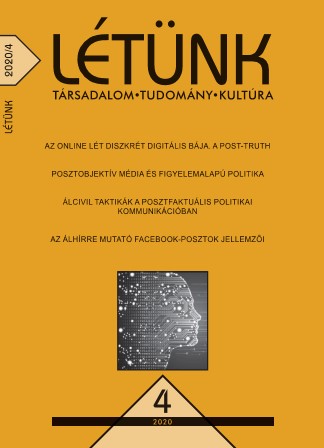ÁLCIVIL TAKTIKÁK A POSZTFAKTUÁLIS POLITIKAI KOMMUNIKÁCIÓBAN
Fake grassroots tactics in post-factual political communication
Author(s): Péter GerencsérSubject(s): Media studies, Politics and communication, Politics and society, Theory of Communication
Published by: Fórum Könyvkiadó Intézet
Keywords: citizen journalism; digital astroturfing; fake news; postmodern; post-truth; Web 2.0
Summary/Abstract: The paper explores the relationship between political practices known as post-truth and deceptive, fake grassroots tactics, and claims that post-factual political communication exploits and subverts the appeal of laical and grassroots practices for political gain. First, the paper asks how the postmodern paradigm prepared the advent of post-truth ideologically, and then argues that the prosperity of post-truth is closely linked to the spread of the internet and Web 2.0 media environment in the 2010s. Subsequently, the essay discusses fake autonomous tactics in two frameworks. The first is the partisan media, that is, the use of alternative communication channels opposed to the mainstream media, aimed at providing the illusion of deliberative democracy. The second tactic is to disguise top-down activities as grassroots, named as 'digital astroturfing' by the Swiss research institute ZIPAR (Zurich Institute of Public Affairs Research), and to identify and prove it is a hard challenge because their activities are necessarily clandestine.
Journal: Létünk
- Issue Year: L/2020
- Issue No: 4
- Page Range: 57-74
- Page Count: 18
- Language: Hungarian

